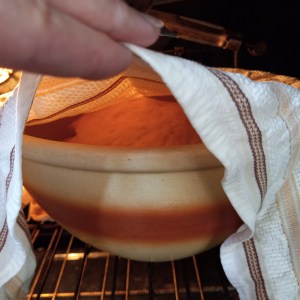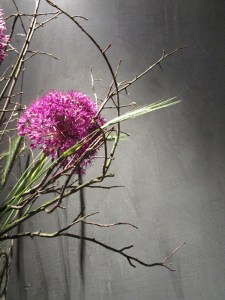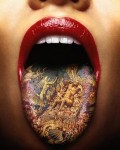 Welcome back to The Artist’s Corner for the second portion of my interview with poet Carrie Tangenberg. Today, we’ll continue with Carrie’s amazing insight into poetry as well as enjoy one of her original poems.
Welcome back to The Artist’s Corner for the second portion of my interview with poet Carrie Tangenberg. Today, we’ll continue with Carrie’s amazing insight into poetry as well as enjoy one of her original poems.
Why is poetry important?
A literary question for the ages. I can only look through my biased poet’s lens, but I think it’s valuable not just because academia tells us it is.
For me: Poetry gave me a way to express myself early in life that did not demand absolute clarity or lots of text. I could write what I felt or wanted to feel. I could focus on rhythm and the sounds of words. It didn’t have to make sense to anyone but me, and even then, it took me a long time to be so kind to myself. I used to be quite experimental, moving from puns to invented words and concepts, creating sense out of nonsense. Poetry lets me stretch linguistic connections, explore different word combinations and uses of any given word or phrase, and discover new routes to meaning and beauty.
In general: Poetry offers a shortcut to evoking reader emotion, making us feel deeply, recalling our humanity. Poems explore, celebrate, articulate, and enhance life, death, love, art, nature, and human connection. Poems invite different ways of seeing everyday things, different ways of thinking about life. Poetry is lyrical, musical, rhythmic, with creative phrase order, language use, lines, and “paragraphs.” Poems present puzzles and riddles to solve and enigmas to wonder at. Poetry can add a touch of class, beauty, spirit, weight, or emotion to more logical or pragmatic ceremonies, presentations, and texts.
Poetry can be challenging, not lying down easily before you just because you showed up to read it. It makes you work by being in stanzas and by making readers pay attention to details to gain meaning. It’s a useful form to renew our concentration abilities, recovering them from Tweet and sound bite, back toward longer literary forms. Among literary modes, poetry pre-dates the novel, the news article, and the textbook. It has longevity. Poetry lets readers and writers approach the depths of meaning to find a way to shine a light and share. Poetry offers greater variety of form than fiction or non-fiction does. It is a diamond of many faces. Poetry offers a niche to fit into when your work or interests don’t fit neatly anywhere else. For instance, poetry lets non-visual artists, listeners, and readers penetrate and fill the spaces between too-reasonable words and wordless music. Songs are poems, and they lend insight into and mark the passage of our culture’s generations.
Beyond that, I refer you to The American Interest online article “Why, Poetry?” by David Kirby (2007). Great stuff. Addressing poetry’s value, he asks, among other things, “Why is there a poet laureate but not a novelist laureate or playwright laureate?” It must mean something to us. Poetry is easier than it used to be, more accessible, and more diverse. New forms are invented on the Internet, and poetry culture moves forward.
As with any art or literature, not all poems work for everyone, but poetry is a unique form with so much mileage that there really is something for everyone.
What do you see as the role of humor in poetry?
As with many aspects of poetry, humor in poetry is often subtle, but there’s no rule against including the comical in a poem that doesn’t also apply to the rest of the poem or non-humorous ones as well. As long as a poem can breathe, that is if it’s of sufficient length, there can be room for humor in even the most serious. The tension between opposing emotions is something that makes art great.
Billy Collins is the perfect example of a poet who has woven humor masterfully into much of his work. See “Paradelle. Silly and/or psycho form from Billy Collins.” – from the Writer’s Digest article “List of 50 Poetic Forms for Poets.”
Humor’s role in poetry varies and can be manifold. It can be an effective method of emotional contrast for emphasizing a concept or point, or for deepening a dramatic effect. It can help some readers better relate to a poem’s message. It can be pleasurable in its own right. Then, there are the forms of poetry designed for or generous to humorous content: limericks, rhyming couplets, parody, and others.
There are also poetic forms, such as the elegy, that are meant to be serious. In the end, the poet should aim to match form to content and mood. For a simple example, if a humorous shape emerges from a concrete poetic image, the reader expects funny content.
What is the relationship between your speaking voice and your written voice?
We both tend to be long winded. I’ve always been a formal speaker and an even more formal writer, using words often beyond the understanding or comfort levels of readers and listeners, who in my experience tend to be young or struggling students. But because I dabble in so many different genres, forms, and purposes with my writing, I’m still trying to find a cohesive voice for each. In some ways, just as novelists must put themselves in different frames of mind to get into different characters, a poet can use the poetic space to explore different perspectives and different voices from different characters. The narrator/speaker is not always the author in either poetry or fiction, and they should not be equated. Qualities of an author’s history or personality may echo through his or her work, but not all poetry or fiction is fully or even partially autobiographical.
I think, though, that it is a rare person who is able to speak the same way to every other person encountered in life. Because of this, even our speaking voices are not internally consistent, let alone matched up perfectly with our written voices. On one hand, you wouldn’t want to speak to a stranger the same way you speak to your child or partner. On the other, even when we try to “be ourselves,” we unconsciously hide and reveal, emphasize and downplay, different parts of ourselves depending on who we interact with, our comfort levels, intentions, vulnerabilities, experiences, habits, and modes of being—recreational versus professional atmospheres, for example. People not only can change but do, quite often from moment to moment, in how they represent themselves. It may be dishonest at times, but just as truth can be subjective, so can our identities be flexible. People rarely walk around unfiltered. There’s always a hidden and a visible self. Self-control, invaluable to civilization, means suppressing our first impulses, and that’s a kind of lie, too.
Do you belong to a writing group or community of poets with whom you share your work? Has this been beneficial?
I’m in a writing group, but it’s multi-modal and focused on fiction. Luckily, there are a few members who are also poets, which can add a layer of insight that those less familiar with poetry may not be able to offer. It’s always good to have an outside perspective to consider during revision. With the group, I learn things that apply to all my writing, including poetry.
What do you believe is the measure of success for a poet?
That’s an excellent question. The short answer, unfortunately, is the unsatisfying “It depends.” In this day of self-publishing at the drop of a hat, it’s not the ability to self-publish or be “published.” It’s not solely the ability to get the words on the page with confidence. It’s not necessarily being held in high esteem by authorities with clout, or receiving poetry awards. It’s neither self-defined nor externally defined alone. I suppose it could be a blend of self-perceived success, some degree of circulation of one’s poetry amidst the masses, and some acclaim as a result of that.
If you don’t feel successful, that doesn’t mean you aren’t, but success in poetry can rarely if ever be defined by financial reward or income sustainability. It’s a long-standing sad joke among poets that this just doesn’t happen with poetry alone. A writer has to diversify. Focus on non-fiction of various kinds, including researched biography, instruction books, a cultural niche, or journalism than to rely on poetry for lucrative ends. Once the poet accepts this reality and still commits to the work of writing verse as part of the repertoire, the aim is to continue to develop as an artist, to advance your craft beyond what it was yesterday. If you can do that, and know that you have, you are succeeding as a writer.
What advice do you have for aspiring poets? Do you believe writing poetry can be taught or is it strictly an inherent ability?
Certain principles and several specific forms of poetry must be taught, but writing good poetry also requires innate orientation to the music, cadence, rhythm, sounds, imagery, lyricism, phrasing, or forms of poetry. It requires a thorough understanding of the effective use of language to communicate, to suggest, to imply, and it requires knowing what not to write and how not to write. It requires study, whether self-driven or received in a top-down fashion, as in college or an MFA writing program. True poetry rarely just happens, though I suppose it has occurred and remains possible in that rare individual.
I come from a verse writing education where my professor encouraged further study of certain aspects of my work beyond the scope of my courses. However, I believe a poet can emerge without formal higher education. Poetry is one of those modes of writing with so many variations in approach and form that experimentation and innovation may actually be more readily achieved in poetry than in long-form fiction, for one.
Consistency and cohesion within a poem are key. You can break the rules, but do so across the poem without restoring them at any point. For example, if it’s going to be a poem with end rhymes, you must carry that through to the end. If the first lines are not rhymed, suddenly starting to rhyme part way through is jarring to the reader. If you don’t apply techniques consistently across a piece, you’ve probably written at least two different poems or parts of poems, thinking they’re one when they’re not.
Poetry is all about patterns and the communication of the parts with each other. This is more important in a short form of writing, including short stories, than in longer forms, though novels still do better with some discernible shape—the rising action, conflict, climax, etc.—than without it. If a poem is poorly organized or incoherent or disjointed, it’s really, really noticeable. You can more easily get away with a little nonsense or minor error in a fiction manuscript.
How would you recommend someone reading poetry for the first time approach a poem?
Any poem of significant length, complexity, or difficulty should be read in phases for its layers. First, read it for the basic idea, and then read aloud to listen for its music. Poetry is designed to be read aloud. Next, read it over and over again with a different focus each time, including: (1) prosody, or the elements of versification and metrical structure, (2) meter-related rhythm, (3) form, including stanza division and line breaks, (4) rhyme, alliteration, assonance, consonance, and other sonic devices, (5) use of literary tools such as personification, metaphor, and simile, (6) point of view and speaker vs. author, (7) relationship of title to poem, etc.
Form should reinforce meaning, support and not work against it, so the more you learn about how a poem is constructed, the closer you come to understanding its message. Sometimes, form can be a large part of message. Poetry is a mode not infrequently used in a self-reflexive way, with poems about poetry, to express poetic principles in structure and words. Finally (or first!) and most important of all, try to pinpoint what you like and dislike about a poem and why. This will inform your reading choices, increasing your enjoyment in the future, and help you learn more about poetry and how to write it.
How important is accessibility of meaning? Should one have to work hard to “solve” the poem?
A poet should not make it her primary or even secondary aim to impede the reading of her poem. I don’t believe in purposely self-defeating behavior. If you’re reasonably intelligent and you’ve read a poem repeatedly, discussed it, studied it, and still can’t figure out the major strokes, it’s not worth any more of your time. It’s probably unnecessarily difficult.
However, because there are layers to any good poem that’s not a couplet or simple Haiku, most poems can be appreciated at multiple levels. Something I enjoy most about poetry and any art form is the richness that allows the audience to discover something new with each return to the work. In academia, poetry reading and study involving sustained, diligent effort markedly increase your chances of fulfilling whatever analytical requirements your instructor has assigned. In pure enjoyment especially, however, poetry is in the eye of the beholder. Like all art, it is subject to matters of personal taste. It’s a subjective enterprise and a personal study. If you’re not required to work hard to solve it, why strain?
What do most poorly-written poems have in common?
A bad poem can be bad—or have bad sections—for many reasons. It states the obvious, confuses concepts, turns personal grievance into whining, stops at surface-level emotions and ideas, employs clichéd imagery, demonstrates careless word choice, uses length as a crutch to seem important, applies techniques inconsistently, ends after the first draft, abandons form for content, or, conversely, abandons sensible content to show off a certain structure—or all of the above.
If you start with free verse, let it remain free. Start with metered verse, and it should probably conform to the meter your first lines set, though some poetic forms deliberately shift meter across the poem. Unless your specific purpose is to explore the different effects deliberate shifting between formalism and free verse has on the structure or ideas, pick one or the other and stick to it.
Examples of excessive structural worship include using rhyme in a forced way, writing a sonnet with hackneyed imagery and stale word choice, writing in meter with awkward rhythm (i.e., bad meter), breaking lines in awkward places just keep lines neat, or only ever breaking lines at sentence endings.
There are still other ways poems can be poor in quality, but I think those are the main ones.
What do most well-written poems have in common?
The bottom line is that quality poetry, and any writing, is earned. Achieving quality in most things demands study, careful craft, practice, revision, and polish—and those efforts show in the final product. Beyond the opposite of all of those traits described in the previous answer, freshness and originality, masterful vocabulary, applied nuance, and skilled balancing of all aspects set great poems apart from the herd.
Who is your favorite poet?
Too many to list, but here are the main ones: Emily Dickinson, Elizabeth Bishop, Judith Wright, John Keats, Walt Whitman, W. B. Yeats, William Wordsworth, Amy Clampitt, Philip Larkin, Gerard Manley Hopkins, Billy Collins, Sylvia Plath, Wallace Stevens, Wislawa Szymborska, Matthew Arnold, Wilfred Owen, William Shakespeare, Edgar Allan Poe, William Carlos Williams, Ezra Pound, e. e. cummings, Robert Frost, Louis MacNeice, Marianne Moore, Rita Dove, Theodore Roethke, Adrienne Rich, Derek Walcott, Hugh MacDiarmid, W. H. Auden, Christina Rossetti, Robert Burns, Seamus Heaney, Robert Pinsky, Elizabeth Barrett Browning, and many 20th- and 21st-century songwriters.
Other poets I enjoy: William Matthews, Geoffrey Chaucer, Jane Hirschfield, Carolyn Kizer, Mary Jo Salter, D. H. Lawrence, Henry David Thoreau, Dylan Thomas, Robert Pinsky, James Merrill, Richard Wilbur, Kenneth Koch, Patrick Kavanagh, Paul Laurence Dunbar, Donald Hall, Ted Hughes, Samuel Taylor Coleridge, Gwendolyn Brooks, William Blake, and Elaine Feeney.
What is your favorite poem?
That’s a bit like asking someone to pick a favorite moment in life or art. Some of those I’m most passionate about, which I highly recommend everyone reads, would be:
American trailblazers: “Song of Myself” by Walt Whitman; Emily Dickinson’s “Because I could not stop for Death,” “A Route of Evanescence,” “Hope Is the Thing with Feathers,” “My Life had stood a Loaded Gun”
Best war themed: “Anthem for Doomed Youth” by Wilfred Owen (WWI) and “First Snow in Alsace” by Richard Wilbur (WWII)
A downright favorite: Amy Clampitt’s “Beethoven, Opus 111” and “The Sun Underfoot Among the Sundews” (love, love, love Clampitt!)
Quintessential Romanticism: “I Wandered Lonely as a Cloud” by William Wordsworth and “Ode to a Nightingale” by John Keats
A. E. Housman’s “To an Athlete Dying Young” and Countee Cullen’s “Heritage”
Love breaking the rules: “since feeling is first” by e. e. cummings
Pure contemporary, comic enjoyment: “Forgetfulness” and “I Chop Some Parsley While Listening to Art Blakey’s Version of Three Blind Mice” by Billy Collins
Self-reflexive poem about what poetry should be: “Ars Poetica” by Archibald MacLeish
A good feminist spin-off: “Eve to Her Daughters” by Judith Wright
20th-century metrical verse: “The Sunlight on the Garden” by Louis MacNeice and “One Art” (a villanelle) by Elizabeth Bishop. Most poems by Elizabeth Bishop.
Comparing fish: “The Fish” by Marianne Moore and “The Fish” by Elizabeth Bishop
Oh, the sounds: “Root Cellar” by Theodore Roethke and “Lake Isle of Innisfree” by W. B. Yeats
Avant-garde, nature, ephemeral love & line breaks: Book I of Asphodel, That Greeny Flower by William Carlos Williams and “Thirteen Ways of Looking at a Blackbird” by Wallace Stevens
A favorite Scots poem: “To a Mouse” by Robert Burns
Epic post-colonial poem: Omeros by Derek Walcott (having some French will help)
Best (only?) nonsense poem I know: “Jabberwocky” by Lewis Carroll
Philip Larkin: “Church Going,” “For Sidney Bechet,” “An Arundel Tomb” & “Talking in Bed”
Sylvia Plath’s “Blackberrying,” “Tulips,” “Ariel,” and “Daddy”
Men of Ireland: “When You Are Old” by W. B. Yeats and Seamus Heaney’s “Punishment”
What kind of work are you most drawn to reading yourself? Do you find yourself reading work similar to your own or completely different?
With writing, I think like attracts like. I seek out what I want to emulate, and I try to emulate what I find most precise, original, musical, and beautiful.
What book are you reading right now?
A book club book: The Good Earth, itself written with lyrical, rhythmic prose by Pearl S. Buck. I’ve recently collected some books of poems by Elizabeth Bishop, Wislawa Szymborska, Judith Wright, and Elaine Feeney. I received A Thousand Mornings by Mary Oliver as a gift, but I haven’t been as impressed with her work. Also on my bookshelf are almost all of Billy Collins’ poetry, an old complete works of Emily Dickinson, poems by Rumi, and the Norton Anthology of Poetry, 4th edition, along with many other books of and about poetry.
Do the Internet and social media contribute to the well-being of poetry?
I believe so, though I couldn’t say how at the moment. Or, rather, I can’t tell whether the net effect is positive or negative. But like any major cultural force, it does have impact on art. So much is more readily accessible than before this digital information age. Quoting is a pastime for many. And yet, the impulse to speak constantly to others, to comb and scroll and scan through endless talk must also diminish the preciousness of words. We increasingly employ the short form in communicating with one another—the sound bite, tweet, Facebook shout-out, Instagram posting—but that doesn’t make it poetic, any more than reading print copies of novels makes us necessarily more poetic.
Where can one find you on the Internet?
Blog: “Philosofishal”
Twitter @Carrielt37
Facebook: Carrie Tangenberg
LinkedIn: Carrie Tangenberg, Writer, Tutor
Do you have any non-poetry/writing creative outlets?
My most prevalent non-writing hobby would probably have to be photography. I like to draw occasionally. I’ll paint a picture every once in a while, but not without guidance; I’ve enjoyed a couple of those wine and painting events. I love color in general, so I dabble in home decorating, gardening, coloring books, and the occasional craft project.
Please share an original poem.
“Ode to Cantwell” by Carrie Tangenberg © 6/9/01, revised 4/10/16, 11/3/17
First composed at Cantwell Cliffs, Hocking Hills State Park, south central Ohio
Ferns cry up the greenest
moss-kissed stones I’ve seen.
Fellows dress in fringe,
and cascade merriment.
Velvet mats outdo
a frond-sprawl of delight—
in one vale, fresh spinach,
another, shamrock shake (or
is that lichen?), then lime
green Jell-O, young
avocado—ever glad
in rained-soaked shade.
If trees are chefs and servants,
then falls of ale ensconce
a vast buffet, inviting
calls to Cantwell Cliffs.
No hearth yet in view,
we walk, my love and I,
grasp at crags and creases.
A share of these replaces
clasping hands—too fraught,
despite appeasing warmth.
Plump rock faces, deep-
set stoned eyes, cliff chins,
talus noses, unkempt
joyful, bearded jaws
of giant height (or depth),
bouldered, flaunt their black-
and-green tartan patterns,
like heady Guinness pints
wrapped in Beltane bands.
We lurk the upper lip
and scarce escape the teeth.
One walking stick—scepter-
shaped, a hovering torch—
guides a canty man
askance our emerald path.
Swift, glad and keen,
earthen steps from rod to
root, his wordless cant:
“I am the fateful ambler,
chief of my migration,
god of my life and strife.
I come here to be, to pass,
to climb, to stir green trails
to sight and sense, imbibe
and feast in any weather,
hearth or no, till I’m full
and satisfied. I’m noble
but free, for I leave it all
here, fulsome as before.
“Though I look not behind,
I know return is rare.”
Serrated plumage wags
at slightest breath of man.
Untrod, the mosses cling.
Ebullient, verdant things.
 Hello, Realmers! It’s time for another weird Thursday post, but at least I have something to report.
Hello, Realmers! It’s time for another weird Thursday post, but at least I have something to report.














